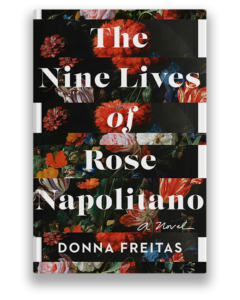 Review by Abby Orenstein Ash
Review by Abby Orenstein Ash
I once nannied for a wise and sarcastic professor who told me, “This era is absurd. Women are expected to take care of everything in the household, work, and now, they have to get down on the rug and play with their kids.” Having no children at the time, I did not viscerally understand her point, but I was already well aware of the prevailing societal expectation that women, and particularly mothers, are required to wrangle with even more today than in the past. Modern family life is defined by an abundance of cultural pressures and complete absence of collective resources, a disconnect that Kimberly Seals Allers describes when she writes that, “as a society, we talk endlessly about the importance of family, yet the time and work it takes to nurture and manage a family is utterly disregarded” (153). Now, as I personally experience this disconnect, I am reminded of that professor’s aside whenever the expansive expectations and nonexistent support systems for modern motherhood leave me ambivalent about having children.
Donna Freitas, a young adult novelist and scholar of topics related to sexuality and college campus culture, befriends this ambivalence in her first adult novel, The Nine Lives of Rose Napolitano (2021). Simultaneously channeling parents and childfree, with all their differing apprehensions and desires, Freitas explores the inner life of Rose, an academic struggling with the decision to have children with her husband, a photographer named Luke.
Nine Lives opens as Luke observes a full bottle of prenatal vitamins on Rose’s nightstand. A fight plays out. Luke wants a baby. Rose has never wanted one. From there, nine life trajectories unfold, each styled with sensual precision. In some, Rose has Luke’s baby. In others, Rose and Luke endure familiar challenges, such as infertility or infidelity. Readers live within Rose’s consciousness throughout the work, experiencing a stream of alternative realities at several time periods in Rose’s life.
Rose’s ambivalence toward parenthood is the chorus, the refrain, the context, and the exigence of the novel, as well as a rhetorical task that Freitas undertakes to destabilize the dominant assumption that having children is an inevitability leading to ongoing happiness for every woman. Instead, Freitas shows within one of Rose’s thoughts, “parenthood is like treading water…a series of constant movements…none of them taking us anywhere in particular” (185).
Throughout the winding plotlines of the novel, Freitas challenges the cultural assumption that parenthood is a predestined fate for some and not others. For example, one Rose is covered in flour while pasta making with her child, pouring orange juice into a champagne flute and noticing how “Addie’s juice spills onto the island… and I don’t even mind.” The same Rose interrogates herself late at night: “Were there other reluctant mothers in the world like me…or was I all alone?” (61). Here, Freitas invokes women as subjects of coexisting possibilities; as paradoxes, rather than cultural objects of biology.
What surfaces is the painfulness of Rose’s vacillation, or what it feels like for women to make a final decision about children after being stuck. The story shows it is equally distressing not to want to have children and to stay with that gut feeling while enduring external pressure, as it is to have children while suffering with ambivalence. Mobilizing this conflict in reader is something Freitas transacts just right.
Freitas makes many other evocative choices throughout the work. She vaguely etches Rose and Luke’s careers in order to convey how the grind of familial life can eclipse the very center of thinking. Freitas portrays Luke as an artist who superficially supports Rose’s independence from heteronormative traditions, until it is revealed that his beliefs in the domestic sphere are quite conventional. Luke loses patience with Rose’s drive and explains that he is “tired of hearing about your work, and how because of it, we can’t have a baby” (16). Luke himself struggles with equivocation about having children; his fixation stems from his parents’ pressure about having kids. Instead of negotiating that dynamic as his own responsibility, Luke imposes it on Rose. In these ways, Freitas unearths fine complexities in Rose and Luke’s marriage with accessible yet subtle prose. The zig-zagging structure of possibilities in the novel represents the burden of potentiality women inwardly perceive for themselves.
Nine Lives invites readers to identify with challenges in such a way that induce honesty about how painful life can be, whether one becomes a parent or not. Freitas’ Rose encourages reader to disrupt the judgement and commodification that pervade systems of parenthood and the childfree. With Rose as an exemplar who resists traditional notions as the heart of her inner life, readers can consider how to pursue reproductive justice, as both parents and childfree, together.
The Nine Lives of Rose Napolitano by Donna Freitas
Pamela Dorman Books: Viking, 2021, $20.99 [hardcover]
ISBN Number 9781984880598
Abigail Orenstein Ash is a Teaching Assistant Professor in the Writing Program at Thomas Jefferson University in Philadelphia, where she lives with her husband and two children. She received her PhD in Rhetoric from Temple University.
